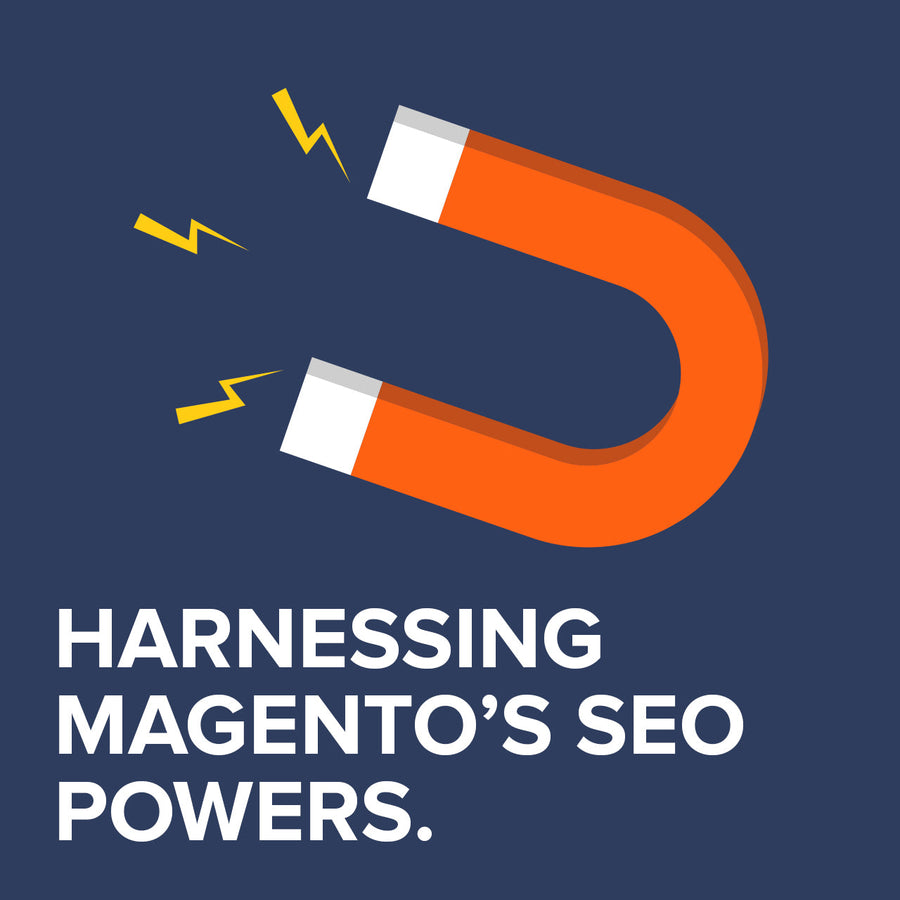Harnessing the Power of Magento's SEO Features
5 February 2025

Whether you're looking to fine-tune your technical SEO or optimise on-page content, Magento has the tools you need—but only if you know how to use them effectively.
Magento, a leading platform powering countless online stores, offers a lot of built-in SEO capabilities designed to help businesses gain visibility and drive organic traffic to improve SEO rankings. Yet, many store owners and marketers struggle to tap into its full potential, whether due to limited SEO knowledge or the sheer breadth of Magento’s features on offer. This article delves into the essential SEO tools Magento has in it’s arsenal, providing actionable insights and best practices to help your store climb the search engine rankings, attract more customers, and ultimately boost sales. Whether you’re looking to fine-tune your technical SEO or optimise on-page content, Magento has the tools you need—but only if you know how to use them effectively.
Understanding SEO for Magento Stores
Search engine optimisation (SEO) is the practice of enhancing your website to improve its visibility on search engines, making it easier for customers to find your store online. For Magento stores, SEO encompasses three key aspects: on-page, off-page, and technical SEO. On-page SEO focuses on optimising elements directly on your website, such as content, meta tags, and URL structure. Magento simplifies this process with built-in tools for managing meta descriptions, title tags, and image alt text, ensuring your pages are search-engine-friendly. This is even more powerful when teamed with web analytics to gain a better understanding of the number of unique visitors, the number of views, the bounce rate, top pages, the top traffic referral sources, and locations as you can easily optimise the content to make it more attractive for your customers. Off-page SEO, which includes activities like link building and social media marketing, benefits from Magento’s robust content management system that supports the creation of shareable, engaging content to drive external links and social traffic. Finally, technical SEO ensures that your site performs optimally for both users and search engines. Magento excels in this area with features for generating XML sitemaps, configuring robots.txt files, and ensuring mobile responsiveness—all critical for improving site speed, crawlability, and usability. By leveraging these features, Magento store owners can address every aspect of SEO and create a strong foundation for long-term online success with content that engages with customers.
Optimising Your Magento Store for SEO
To maximise your Magento store’s visibility and performance, a strategic approach to SEO is essential. Start with thorough keyword research (tip: try using Google Analytics - although complex, it synergises well and is easy to add to Magento) to identify terms your target audience uses and implement them naturally across product descriptions, category pages, and blog posts. Create compelling, high-quality content tailored to your audience’s needs and optimise it with relevant keywords, engaging visuals, and clear calls to action. Pay special attention to optimising product and category pages by refining meta tags, enhancing descriptions, and using structured URLs for better search engine ranking. Build backlinks through outreach and shareable content, establishing your site as a trusted authority in your specialised market. Magento’s built-in tools, such as meta tag editors, sitemap generators, and configurable robots.txt files, simplify many of these processes, making SEO implementation more efficient. Remember, SEO is an ongoing effort—regularly update your content, monitor performance, and adapt to the latest trends to ensure your store stays competitive in the marketplace.
Additional Tips and Considerations
High-quality content and an excellent user experience matters if you’re aiming for SEO success. Search engines prioritise websites that deliver value to users, so focus on creating informative, engaging, and original content while ensuring your Magento store offers seamless navigation, fast load times, and mobile responsiveness. To further enhance your SEO capabilities, consider leveraging Magento extensions and third-party tools designed for advanced optimisation, such as rich snippet generation, advanced analytics, and automated SEO auditing. For experienced users, advanced techniques like implementing structured data, leveraging canonical tags to prevent duplicate content issues, and using custom scripts for A/B testing SEO strategies can yield significant gains. By combining high-quality content, user-focused design, and the power of Magento’s ecosystem, you can elevate your store’s visibility and sustain long-term SEO growth.
Conclusion
Mastering SEO is essential for driving traffic, improving visibility, and increasing sales. This article highlighted the key aspects of SEO—on-page, off-page, and technical—and explored how Magento’s powerful built-in features can simplify and enhance these processes. From keyword implementation and content optimisation to leveraging tools for mobile responsiveness and sitemaps, Magento provides eCommerce businesses with the tools they need to excel in search rankings. By optimising your store using the strategies and tips shared here, you can unlock the full potential of Magento’s SEO capabilities and set your business on the path to sustainable growth. Start today, and watch your store rise in the search engine rankings and attract more customers organically.
How Absolute Design Can Help
Ready to take your Magento store’s SEO to the next level? At Absolute Design, we specialise in Magento development and Magento maintenance support services, offering tailored solutions to help eCommerce businesses achieve better search rankings, enhanced user experience, and increased sales. Whether you’re starting a new project, need help fine-tuning your existing store, or require ongoing support, our team of experts is here to guide you every step of the way. Contact Absolute Design today to discuss your Magento project or explore our range of support services. Let’s work together to unlock your store’s full potential!
Contact Us to discuss how we can help increase sales and boost your online performance!
INSIGHTS
CASE STUDIES

Electrical Counter
Discover how we optimized Electrical Counter’s Adobe Commerce Cloud migration with a seamless Equinox ERP integration, 100K+ SEO-friendly redirects, and bespoke functionality for automation, pricing, and performance.
-
Magento

Floor Giants
Discover how Absolute helped Floor Giants boost customer engagement and streamline their Magento store. Learn about the key features that made the difference.
-
Magento

Packaging Environmental
An Adobe Commerce Cloud site delivering an enhanced B2B customer experience, bespoke features to fulfil unique business logic and improved GDPR compliance.
-
Magento

Packaging Environmental Sage X3 Integration
Having been purchased by Bunzl UK Ltd, Packaging Environmental needed to move their ERP system from Sage 200 to Sage X3.
-
Magento

Leading Jewellery Brand
Multi-store Adobe Commerce Migration.
-
Magento
CONTACT
Are you excited to get your next project up and running? Or are you unsure what is dragging you down?
Contact Us to discuss how we can help increase sales and boost your online performance!

Enter your email address to sign up to our newsletter, featuring case studies, insights, industry news and much more.
If this is something you would like help with, please get in touch.







